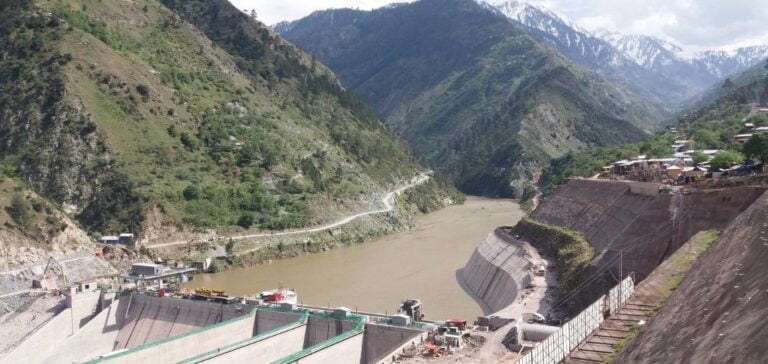The 969 MW Neelum Jhelum power plant in Pakistan has been taken out of service for a physical inspection of its intake tunnel, following the discovery of a pressure drop a month ago. The problem comes shortly after the plant reached full capacity at the end of March 2024, marking a new chapter of technical difficulties for the facility, which had already been shut down in July 2022 due to major cracks in its 3.5 km leak tunnel.
Technical interventions and consultations
The Water and Power Development Authority (WAPDA) indicated that, following identification of the problem, a comprehensive plan would be drawn up in coordination with project consultants and international experts to carry out the necessary repair work. Previous interventions had allowed production to resume in August 2023, but recent pressure fluctuations have imposed a restriction of production to 530 MW since April 6 to monitor the situation.
Safety and future precautions
Project management took the decision to temporarily shut down the plant on May 1 for a thorough inspection, in response to additional pressure changes observed at the end of April. The safety of the long 48 km tunnel and the power plant being the priority, a dewatering plan was implemented, with draining operations planned in stages to protect the infrastructure.
The Neelum Jhelum hydroelectric project, located in a geologically unstable and earthquake-prone area, faces ongoing challenges that affect its energy production. These repeated interruptions underline the crucial importance of constant maintenance and monitoring for large underground energy infrastructures.






















